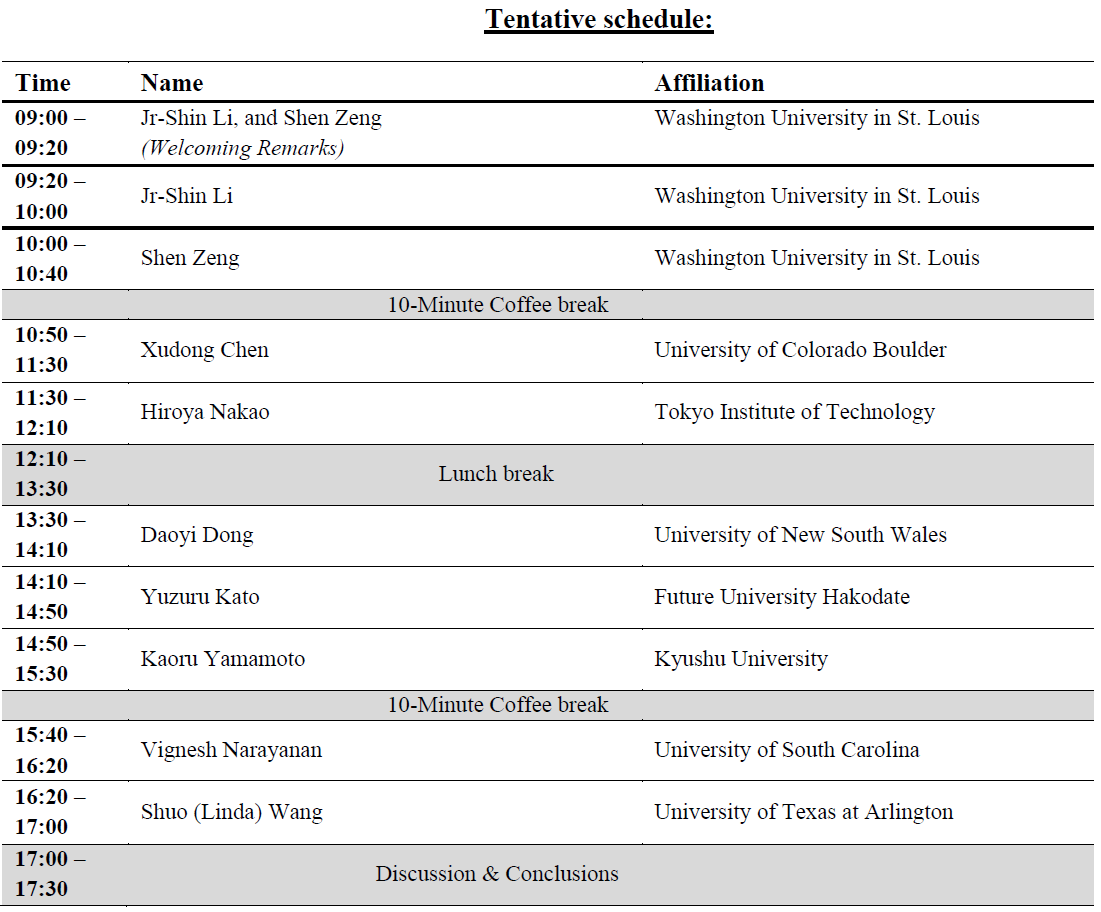11. Systems Theory of Ensembles: Fundamentals, Learning, and Applications
Organizers: Jr-Shin Li, Shen Zeng, Hiroya Nakao
Location: Roselle Junior 4612
Abstract: The emergence of complex systems constituted by a vast ensemble (population) of structurally similar dynamical units (agents) has created massive waves driving the recent research in systems science toward learning, engineering, and controlling the collective dynamics and behavior of population systems. Notable examples appearing across disciplines include excitation of spin ensembles in applications of nuclear magnetic resonance, effective stimulation of neuronal populations in treatment of neurological disorders such as Parkinson’s disease, decoding and inference of dynamic topology and functional connectivity in dynamic networks, development of autonomous intelligent machines or factories in interconnected spatiotemporally dynamic cyber-physical systems, as well as the mediation of epidemic outbreaks witnessed in recent years. A common thread of these very challenging dynamic large-scale population problems lies in the fundamental limitations that control and observation can only be implemented at the population level, i.e., through broadcasting a common input signal to all the systems in the population and through receiving aggregated measurements (e.g., snapshots or images) of the systems in the population, respectively. This restriction gives rise to a new control paradigm of population-based control, called ensemble control.
Interest in conducting cutting-edge analysis, estimation, control, and learning algorithms and technologies capable of addressing these emerging sophisticated control systems has seen a stellar growth in recent years, and the development is continuously ongoing. In this workshop, we will offer a comprehensive introduction into the recently spurred, highly exciting and rich field of ensemble control that inspires open challenges and new opportunities for control theory concerning with high-dimensional and very large-scale phenomena. Emphasis will be placed on surveying the fundamental theoretical results of this area in the beginning, and then conveying both state-of-the-art methods for theoretical, computational, and data-driven treatments and emerging applications at the forefront and interface of systems science, control engineering, data science, machine learning, quantum physics, neuroscience, and biology.
Lecture Schedule:


